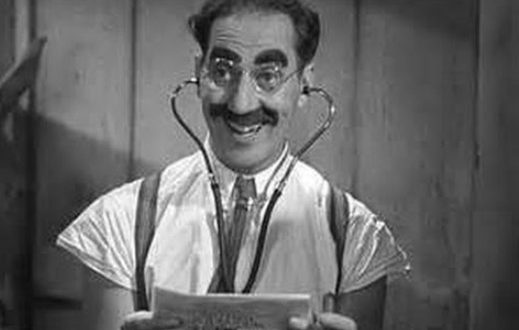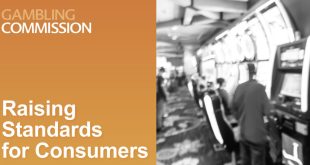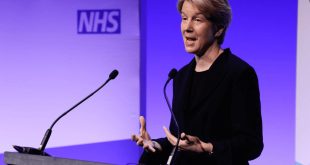Regulus Partners observes mixed messages from the NHS on treating problem gambling, as bosses have raised concerns on increased referrals to their specialist clinics for gambling disorders, suggesting a misuse of facilities.
NHS bosses have committed to expand the network of problem gambling clinics to 15, yet concerns remain on the NHS’ strategy which has seen it marginalise third sector partners providing vital insights and experience on how treatment is provided.
_________________
There are few domains where trust is as important as the medical profession – for fairly obvious reasons. Sadly, such integrity is not always shared by the bureaucrats, lobbyists and spin doctors who claim to represent our medical and healthcare workers.
Last weekend, the NHS expressed alarm at discovering that clinics set up to treat people with gambling disorders were being used by people with gambling disorder. The CEO of the NHS, Amanda Pritchard commented with consternation on the fact that “record numbers of people are coming to the NHS to treat their gambling addiction”. The service received 1,389 referrals in the 12 months to March – up by 79% compared with two years ago (or between three and five per clinic per week).
What Ms Pritchard somehow failed to mention is that there are now eight NHS clinics open compared with somewhere between two and four in 2020/21. In other words, clinics set up to treat patients are doing just that. Quite why this should be a cause for moral panic or a suitable pretext for an attempt to interfere with the Government’s planned reform of the gambling market (including the deal agreed with the English Premiership for a wind-down of gambling shirt sponsorships) is unclear.
The histrionics of the NHS’s managerial class (as distinct from hard-working doctors, nurses and healthcare workers) are becoming rather familiar. Similar statements – marking the fact that a relatively small number of people are accessing services set up to help them – were made on at least two occasions last year. Confected hysteria-on-repeat from the health service’s top-brass suggests either the presence of amnesia – or something altogether more political (and cynical).
The claims are both misleading and distinctly self-obsessed. For a very long time, treatment for gambling disorder in Great Britain has been provided almost entirely by charitable organisations; with community and faith groups and Gamblers Anonymous also providing help and support. The Gordon Moody organisation (which offers residential treatment) was founded more than half-a-century ago while GamCare and its network partners have been helping people with the disorder for more than 25 years. Until 2019, there was only one NHS gambling clinic in the entire country, funded by voluntary contributions from gambling firms (an arrangement that only came to an end last year).
Even with the launch of the new NHS clinics, the Third Sector continues to provide the lion’s share of treatment services. The NHS management’s repeated marginalisation of the role played by these organisations is ungenerous and misleading. As we have observed previously, the (entirely planned) growth in referrals to NHS clinics has been offset by reductions elsewhere in the National Gambling Support Network. The ‘record level’ of state-funded treatment is set against a relatively low bar (just 775 referrals in 2020/21).
Overall treatment numbers have been relatively stable (and if anything may have declined in recent years), although there has been an encouraging increase in the use of helpline services. In 2012/13, the single NHS gambling clinic (in London) received 632 referrals. The fact that a decade later, following substantial investment (from the gambling industry and – belatedly – the DHSC), eight times as many clinics received a little over twice that number of referrals is, if anything, disappointing. Reports in the media that the NHS plans to open a further seven clinics in response to growth in referrals are both illogical and misleading. The target of 15 clinics was set back in 2018 (as part of the NHS Long Term Plan) and has nothing to do with current patient numbers.
The episode highlights two concerning trends. First, is the fact that while medical professionals treat individuals, the organisations that control them are increasingly focused on treating society (through the lens of Critical Social Justice). Money that could be used to raise standards of care (or, God forbid, improve pay and working conditions for nurses and doctors) is diverted instead to political projects.
The second is that, partly as a result of this wider movement and partly through its own negligence, the licensed gambling industry (and particularly the online sector) now faces a formidable coalition of medical organisations that – as researchers at the DHSC revealed last year in The Lancet Public Health – may be plotting its extinction. The NHS, the British Medical Association, the Royal Society for Public Health, the Association of Public Health Directors, The Lancet, the British Medical Journal and the DHSC appear to share – with varying degrees of enthusiasm and very little concern for factual accuracy – the same prohibitionist agenda.
There are few (if any) signs that the industry is making a meaningful attempt to engage with the Health Establishment or that – fixated on the Gambling Act Review – it even recognises the peril it is in. It is likely in any case that most of the organisations ranged against operators would rebuff attempts at constructive dialogue. Too many stakeholders are more interested in politics than in pragmatic problem-solving. As usual, it is customers and those with mental health conditions in particular, who will suffer for this. The situation is crying out for someone to take leadership.
Featured article edited by SBC from ‘Winning Post’ Sunday 09 July 2023 (click on the below logo to access the full unedited analysis of Winning Post).










